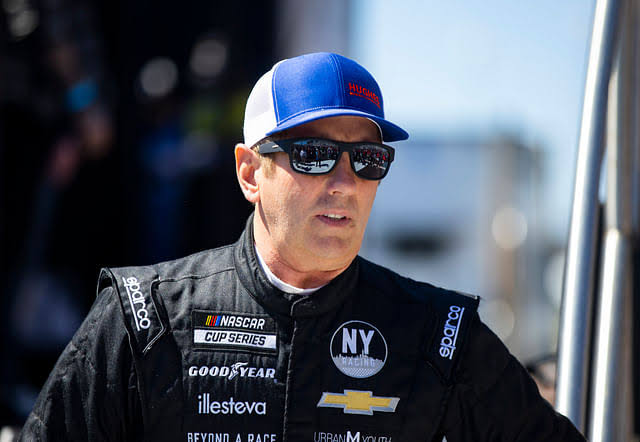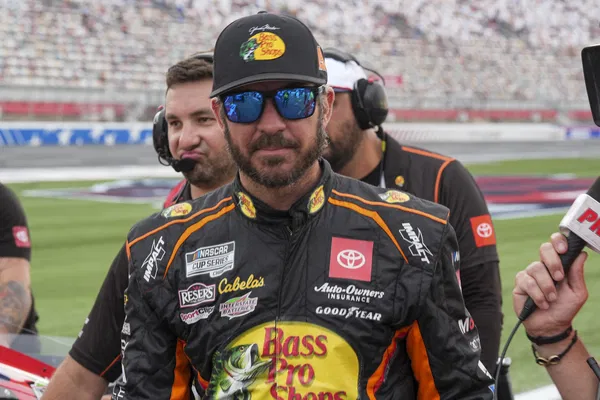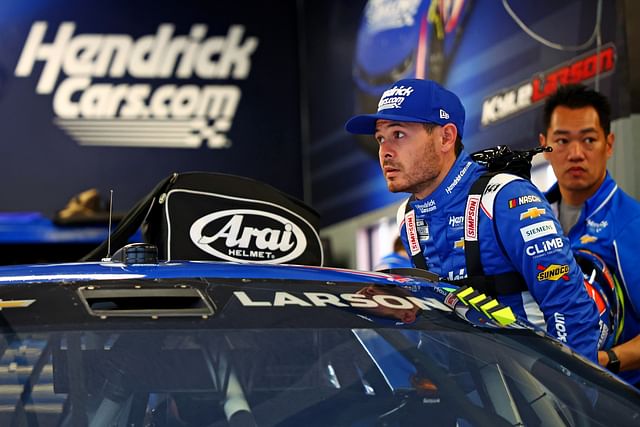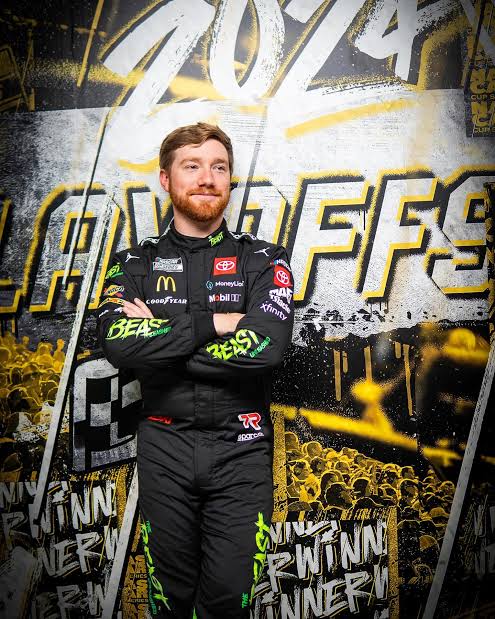While the NASCAR playoffs are in full swing, the focus has shifted to a much larger cause—helping those devastated by Hurricane Helen. The storm has ravaged parts of Florida, Georgia, Tennessee, North Carolina, and South Carolina, leaving many families in dire situations. In the wake of this tragedy, key NASCAR figures like Rick Hendrick, Joe Gibbs, and retired driver Greg Biffle have put aside their competitive rivalries to unite in a relief effort for storm victims.
With the death toll surpassing 100, NASCAR’s biggest names are not just offering support—they’re taking action. Several helicopters owned by NASCAR teams were deployed to deliver essential supplies and rescue those stranded by the storm. Joe Gibbs and his crew took charge of efforts in Asheville, while Rick Hendrick’s helicopters focused on the Fairview area. Greg Biffle also joined the mission, teaming up with YouTuber Lawrence Garrett Mitchell, known as Cleetus McFarland, to fly his own helicopter in an effort to save as many lives as possible. But what drove Biffle to risk it all and step into such a dangerous situation?
Once the rescue missions were underway and survivors began to emerge from danger, Biffle shared his experience during an interview on NASCAR Daily. Host Shannon Sparke asked the former driver about his involvement in the relief efforts, and what led him to use his own resources to help. Biffle revealed that it all started with a simple Facebook message. “I got a message about a family stranded in the mountains in an Airbnb, with young kids,” Biffle explained during the conversation.
The family had been caught in the storm without supplies, and Biffle was immediately compelled to act. He highlighted how many people were unprepared for such a disaster, especially those staying in places like Airbnb, which typically don’t have provisions for emergencies. He also described how many had lost access to power because they couldn’t fuel their generators. This, in turn, led to critical situations where people couldn’t run vital medical equipment. “The scale of the disaster is beyond words,” Biffle said. “From Georgia to North Carolina, Tennessee, even up to Virginia—it’s total devastation.”
Biffle’s own rock quarry in Speedwell, Virginia, was one of the places hit hard by the storm. “The bridge is gone, the whole area is wiped out,” he added. Faced with this overwhelming destruction, Biffle knew he had to help. So, he fired up his million-dollar Bell 206 helicopter and headed out to provide aid.
One of the key moments Sparke brought up during their discussion was the family that first caught Biffle’s attention. Sparke asked if he was able to reach them in time. Biffle shared that he had gotten as close as eight miles to their location before the weather forced him to turn back. “We tried three different routes, but the weather just wouldn’t let us through,” he said. Fortunately, another helicopter crew was able to reach the family from the opposite direction and bring them to safety. It was a moment of relief in an otherwise tense and urgent situation.
Biffle gave more details about the broader efforts to help those in need. “At the start, there were only two helicopters in the air,” he said. “But after that Facebook post went viral, the next morning, we had 20 helicopters up and flying. By the end of the day, we had around 30 to 35, including helicopters from Hendrick Motorsports and Joe Gibbs Racing.”
The response was overwhelming, with support coming from all directions. Fixed-wing pilots from the Statesville Airport also joined the mission, flying in supplies and donations. “We had so much support that the hangar at Statesville was completely filled with donations,” Biffle noted, highlighting the generosity of people from across the country.
When Biffle and his team first arrived at the scene, they were struck by the sheer destruction. “The roads were all blocked, and cars had been tossed onto train tracks by the hurricane,” he recounted. Many families had lost everything—their homes, their possessions, and in some heartbreaking cases, their loved ones. Yet, despite the immense loss, Biffle emphasized one important takeaway: “NASCAR may be about competition on the track, but when it comes down to it, we’re united as one for the people of this country.”
In the face of disaster, NASCAR’s community rallied together, demonstrating that their unity extends far beyond racing. Rivals in motorsport became partners in rescue, all working toward the common goal of helping those in need. Their combined efforts have brought much-needed relief to families affected by Hurricane Helen, and their contributions have saved countless lives.
This story of collaboration and compassion reminds us all of the importance of coming together in times of crisis. So, as NASCAR teams continue to race for the championship, they’re also racing to make a difference in the lives of people who need it most. The question now is: How can the rest of us help in the ongoing recovery efforts? Whether it’s through donations, volunteering, or simply spreading the word, everyone has a part to play. The NASCAR community has shown the way—now it’s time for others to follow suit.




